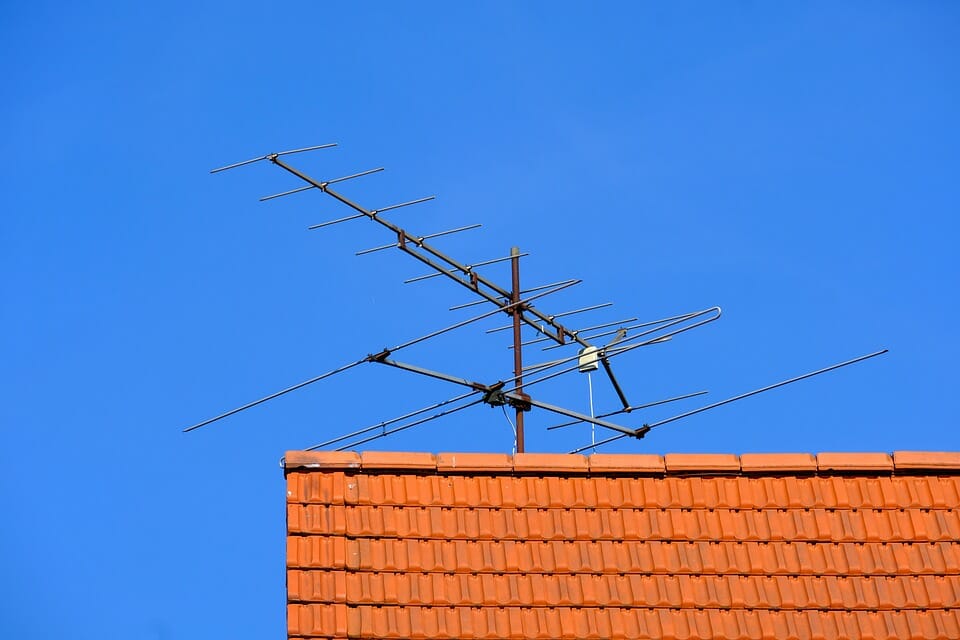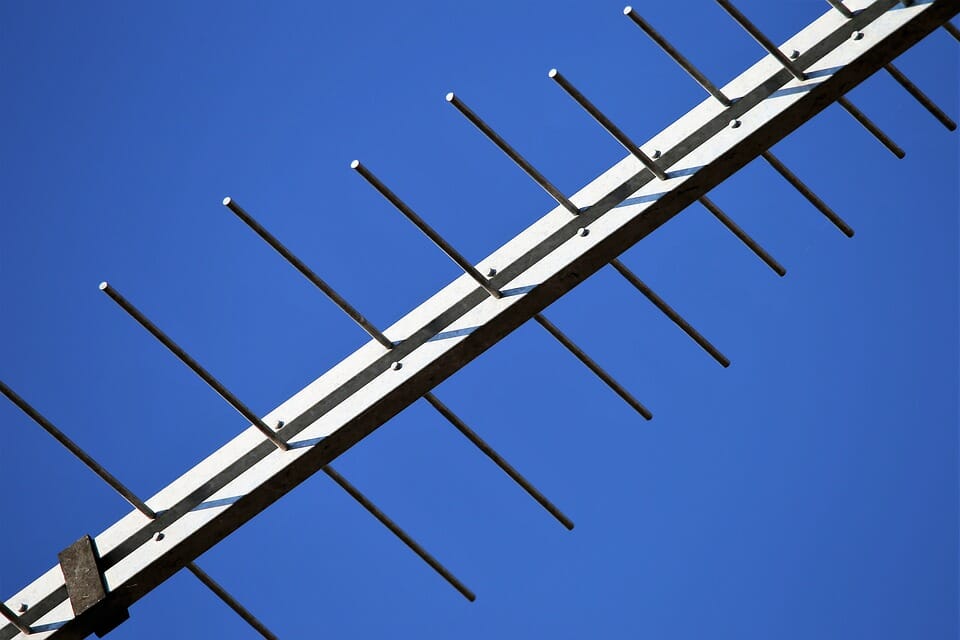Irrespective of the type of TV antenna you use, you’ll realize that it’s never at its optimal performance all the time. It’s at its best sometimes, and on other days, you wonder what the problem could be. You must have noticed particular patterns.
What’s all this about? Does it have to do with time? In this article, we explain how the time of day affects antenna reception.
The Easy Answer
Time of day and weather conditions can actually affect antenna reception. However, these are not the only things that affect reception. There are other things that can cause bad antenna reception such as the presence of metal objects, new cable system installation, bad weather, heavy rain, wifi, trees, buildings, etc.
Tropospheric Ducting Effects
The tropospheric ducting effect is another cause of bad antenna reception.
While tv signals are broadcast from transmitters, a portion of them disappears up into the space and gets lost. But, during some specific weather situations, those lost signals can bend back to the earth and be received from a longer distance than usual. These lost signals can travel long distances, nearly about over hundreds of miles.
This is called tropospheric ducting and it can prevent or distort tv reception.
Causes of Inconsistent Antenna Performance

1. Presence of Metal Objects
Is your TV antenna surrounded by metal objects such as poles and wires? If yes, that’s your first culprit. Metal objects may cause your TV antenna to lose signal during the day as these objects tend to block the signal.
2. Bad Weather
Bad weather is another potential cause of harmful interference. Your TV antenna may lose signal during the day when bad weather impacts the radio waves carrying TV signals.
3. Installation of New Cable Systems
If metal objects don’t surround your TV antenna, and you are not dealing with bad weather, there may be a new cable system in your area. When a cable company installs a new cable system in an area, the transmission of broadcast signals stops happening via the old cables.
4. Movements of the Earth
You may also blame the earth itself for your TV signal loss. The movement of the earth in relation to solar winds and other magnetic forces may interfere with your TV signal. If the planet moves farther away from a large mass body, such as a star or another planet, the gravity acting on us weakens. This means less force pressing down on us.
While the planet is rotating around its axis, it’s also traveling via space. Since we aren’t orbiting another body – like the moon –we experience an elliptical trip around our sun. It’s because of these movements that, at times, the earth is closer to planets and stars than others. In turn, the radio keeps bouncing off of different layers of the planet’s atmosphere depending on our location with respect to the mentioned bodies.
The radio waves experience the most difficulty reaching their destination – your antenna – when we are very close to the said bodies. When we are far away from the bodies, it’s a walk in the park for radio waves. It’s the reason your TV antenna signal is perfect at times and worse at other times.
5. What about WiFi?
Does it interfere with the performance of your TV antenna? Unfortunately, we don’t have a definitive answer to this commonly asked question. Here, two things come into play – your TV’s make and model and the particular wifi signal. (1)
Generally speaking, though, broadcast signals are stronger than wifi signals. Therefore, if you’ve placed your television in an area with strong wifi interference, your TV antenna may have difficulties getting all the channels that you’ve been receiving.
Thankfully, you can test if your wifi is to blame for the lost antenna signal. Turn off your wifi and check if the lost channels come back. If there is interference, you may want to consider buying a better TV antenna. Also, try moving your TV closer to the router or invest in a more enhanced router. Doing so may help minimize or eliminate interference.
6. Heavy Rains
While regular rains don’t interfere with your antenna signal (unless they get into your antenna); heavy rainfall might cause bad reception.
7. Trees and Buildings
Trees and buildings interrupting your broadcast towers’ line of sight may interfere with your antenna reception.
8. Heat may Cause Broadcast Signal Loss
Did you know that heat could also interfere with your antenna performance? Heat can cause poor TV reception. You can solve this issue by keeping your signal amplifier and antenna as cool as possible. One effective way of dealing with too much heat is keeping your equipment inside the building – if possible – and more so if you live in hot climate areas.
Successful Tips for Improving Bad Antenna Reception
- Maintain short cables and avoid running them through walls or floors. They tend to collect heat in such places. Use fiber optic instead of coaxial cable to pass a cable behind a wall.
- Create plenty of space around your antenna to allow maximum air circulation. Keep your indoor antenna on top of something tall such as a bookcase or your dresser.
- If possible, go for an outdoor antenna, which you can mount on your roof. Roof-mounted antennas allow maximum air circulation and hence give an impressive broad signal.
- Invest in a signal amplifier, and possibly, with in-built cooling fans. It’s a good way of eliminating heat inside your system.
- Relocate your antenna. Sometimes, even a few feet difference makes a huge broadcast signal difference.
- Rescan your channels whenever you have terrible signal strength. It helps, sometimes, especially if the obstacle in the way of broadcast towers was just a temporary thing.
The beauty of these TV signal tips is that they are all DIYs. You needn’t engage a professional, just someone in your household, neighbor, or friend, to act as your right-hand helper.
Wrapping Up
Bad broadcast signals can ruin your TV viewing experience. Knowing possible causes of poor TV reception takes away the associated grief and disappointment. Depending on the ground of poor TV reception, there are a couple of things – highlighted above – you can do to improve your experience. An amplifier with inbuilt cooling fans could be another easy-to-implement solution to your bad TV signals. Something as easy as moving your indoor or outdoor antenna a few feet away could solve your signal strength issues.
At times, though, a DIY solution proves impossible. If you’ve tried everything by the book to boost your TV antenna signal strength and nothing has changed, engage your local cable provider. Find out about their digital service offerings and decide if it’s the best alternative for you to enjoy an uninterrupted TV viewing experience. Seek the opinion of an expert as well. You may be missing out on something they can quickly identify and rectify. (2)
Take a look at some of our related articles below.
- How to get better TV reception with outdoor antenna
- What is the best TV antenna signal booster
- 7-ways to boost HDTV antenna signals
References
(1) wifi – https://computer.howstuffworks.com/wireless-network.htm
(2) DIY solution – https://www.bustle.com/p/is-diy-worth-it-7-pros-cons-to-consider-2406214

